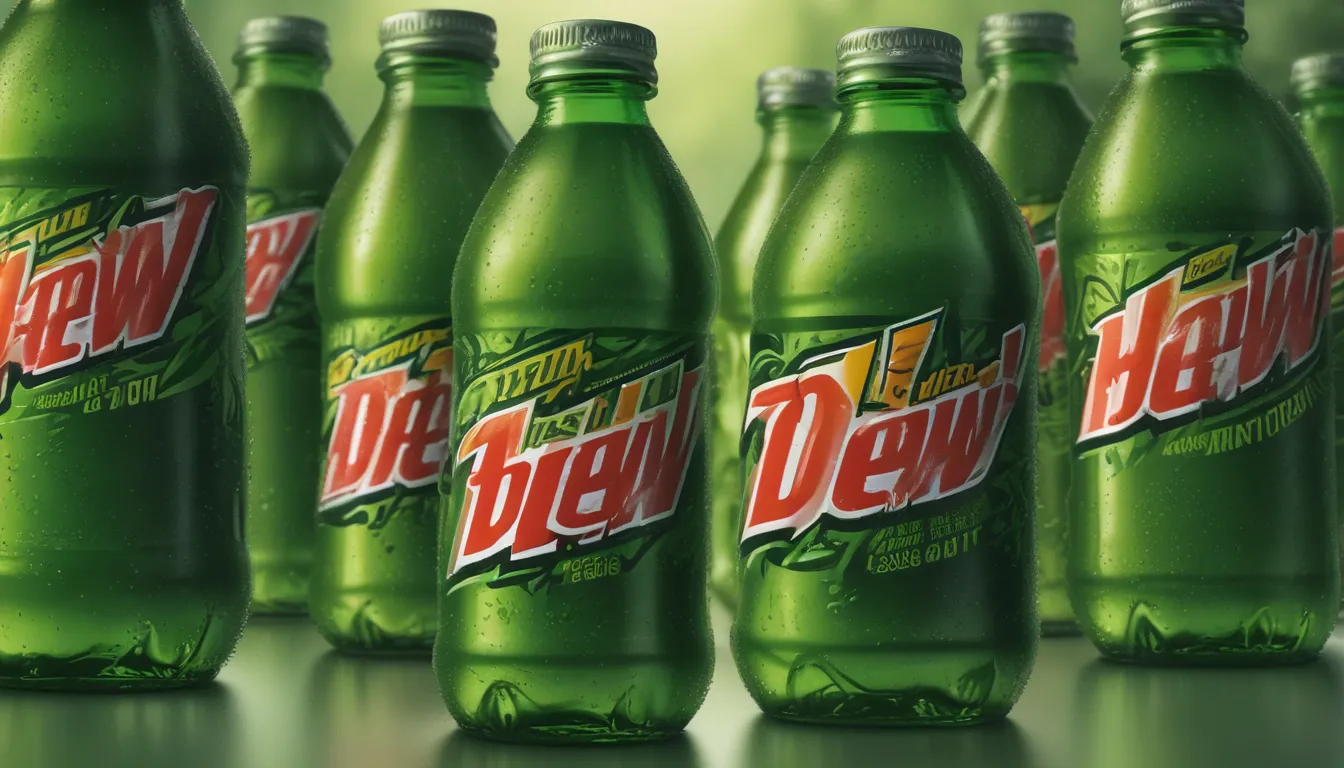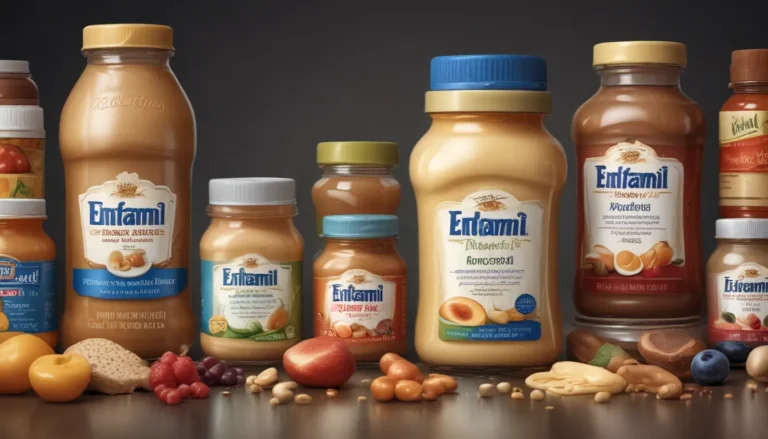The pictures in our articles might not always show exactly what the text is talking about. We use these images to make the article more interesting and eye-catching. They are there to add to the text, but not to replace it or show every detail.
Are you a fan of the bold and refreshing taste of Mountain Dew? If so, you're not alone. This popular carbonated beverage has amassed a loyal following over the years, thanks to its unique flavor and energizing properties. However, have you ever wondered about the nutritional value of Mountain Dew? In this article, we will explore the nutrition facts of Mtn Dew cans, providing you with a detailed breakdown of what you're consuming with each sip. From calories to sugar content and other essential nutrients, we will give you all the information you need to make informed choices about this fizzy drink. Whether you're a die-hard Mountain Dew enthusiast or simply seeking to better understand the beverages you consume, this article will equip you with a comprehensive overview of the nutritional facts surrounding Mountain Dew cans. So, let's take a closer look at the numbers behind the fizz!
Unlocking the Mystery: Mountain Dew Can Nutrition Facts
Let's start by uncovering the key takeaways from the nutritional facts of Mountain Dew cans:
- Mountain Dew cans contain 170 calories, 46g of sugar, and 54mg of caffeine per serving. Enjoy it in moderation and balance it with a healthy diet to stay energized without overdoing it on sugar.
- With zero fat and a small amount of B vitamins, Mountain Dew can be a refreshing treat. Just be mindful of its sugar and caffeine content, and enjoy it as part of a balanced diet.
Dive Deeper: Understanding Mountain Dew’s Nutrition Facts
Now, let's break down the nutritional components of Mountain Dew cans:
Calories: 170
Each can of Mountain Dew contains approximately 170 calories. It's essential to be mindful of the calorie content, especially if you are monitoring your daily intake.
Total Fat: 0g
Mountain Dew is a fat-free beverage, meaning it contains zero grams of fat per serving.
Sodium: 60mg
One can of Mountain Dew contains 60 milligrams of sodium. Keep an eye on your sodium intake, particularly if you're following a low-sodium diet.
Total Carbohydrates: 46g
Mountain Dew is a carbohydrate-rich beverage, with 46 grams of total carbohydrates per serving.
Sugars: 46g
The sugar content in Mountain Dew is also 46 grams. Be cautious of your sugar intake, as excessive consumption can lead to negative health effects.
Protein: 0g
Mountain Dew does not contain any protein. If you're looking to boost your protein intake, consider alternative food sources.
Caffeine Content: 54mg
A can of Mountain Dew provides approximately 54 milligrams of caffeine, offering a quick energy boost.
Vitamin B6: 0.1mg
Mountain Dew contains trace amounts of Vitamin B6, contributing slightly to your daily nutrient intake.
Niacin: 1.4mg
Niacin, also known as Vitamin B3, is present in Mountain Dew at a level of 1.4 milligrams per serving.
Phosphorus: 0mg
Mountain Dew does not contain phosphorus, an essential mineral for maintaining bone health.
Potassium: 0mg
Mountain Dew does not offer significant potassium content, crucial for various bodily functions.
Calcium: 0mg
Mountain Dew does not contribute to your calcium intake, essential for strong bones and teeth.
Iron: 0mg
Mountain Dew lacks iron, a vital nutrient for oxygen transport in the body.
Vitamin C: 0mg
Mountain Dew does not provide vitamin C, known for its immune-boosting properties.
Fat-Free: Yes
Mountain Dew is a fat-free option, suitable for those seeking to reduce fat intake.
Making Informed Choices: The Impact of Mountain Dew on Your Diet
Now that you've gained insight into these 15 Mountain Dew can nutrition facts, you can make informed decisions about incorporating it into your diet. Remember, moderation is key, and it's crucial to prioritize a well-balanced and varied diet.
Important Considerations: Moderation and Healthy Alternatives
While Mountain Dew can be a delightful beverage, it's vital to consume it in moderation. The high sugar content in Mountain Dew can lead to weight gain, tooth decay, and increased risks of chronic diseases such as diabetes and heart disease. Therefore, it's essential to monitor your sugar intake and opt for healthier alternatives whenever possible. Always check the nutrition facts label on the Mountain Dew can to understand specific details about calories, sugar, and other nutrients relevant to your dietary needs. By staying informed, you can make healthier choices while still enjoying your favorite beverage responsibly.
Frequently Asked Questions About Mountain Dew Nutrition Facts
Q: How many calories are in a 15 oz can of Mountain Dew?
A: A 15 oz can of Mountain Dew contains approximately 170 calories.
Q: How much sugar is in a 15 oz can of Mountain Dew?
A: A 15 oz can of Mountain Dew contains around 46 grams of sugar.
Q: What are the main nutrients found in a 15 oz can of Mountain Dew?
A: Apart from calories and sugar, a 15 oz can of Mountain Dew also contains caffeine and a small amount of sodium.
Q: Can consuming Mountain Dew in moderation be part of a healthy diet?
A: While occasional consumption of Mountain Dew can be enjoyed as part of a balanced diet, it should be limited due to its high sugar content. Prioritize water and healthier beverage choices for optimal hydration and nutrition.
Trustworthy Information for Informed Choices
Our dedication to providing reliable and engaging content is the cornerstone of our work. Each piece of information on our site is contributed by real users, bringing diverse insights and knowledge to the table. Our meticulous editors review every submission to ensure accuracy and credibility, guaranteeing that the facts we share are not only intriguing but also trustworthy. Trust in our commitment to quality and authenticity as you delve into the world of nutrition and wellness.






